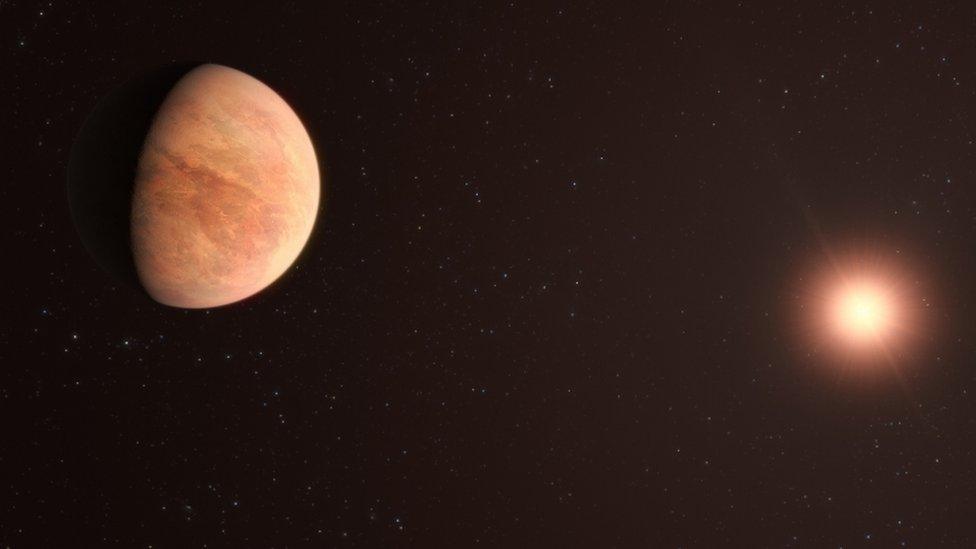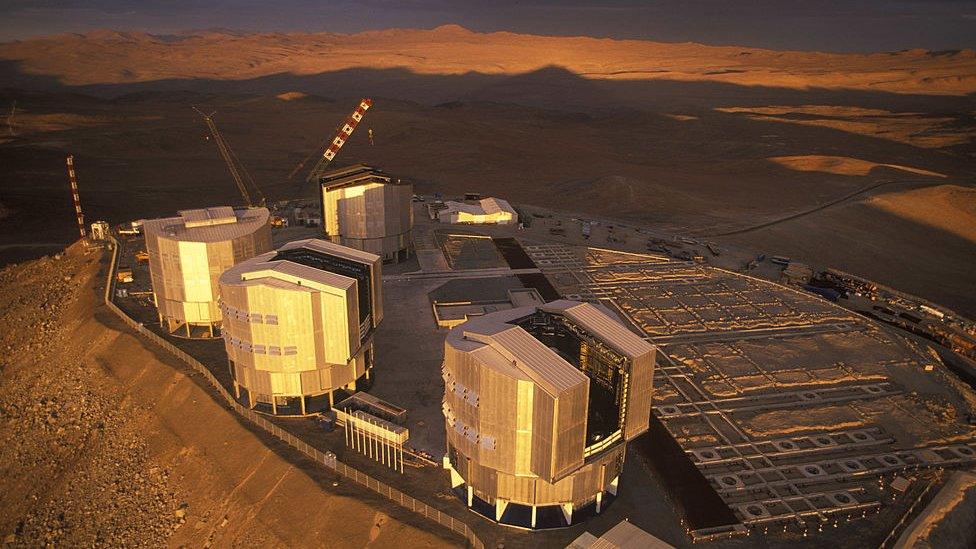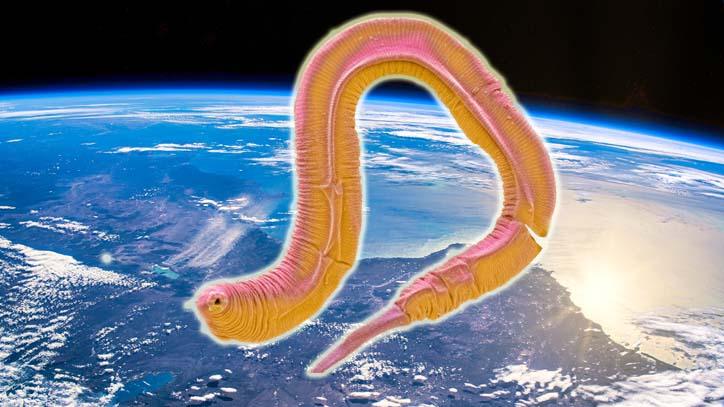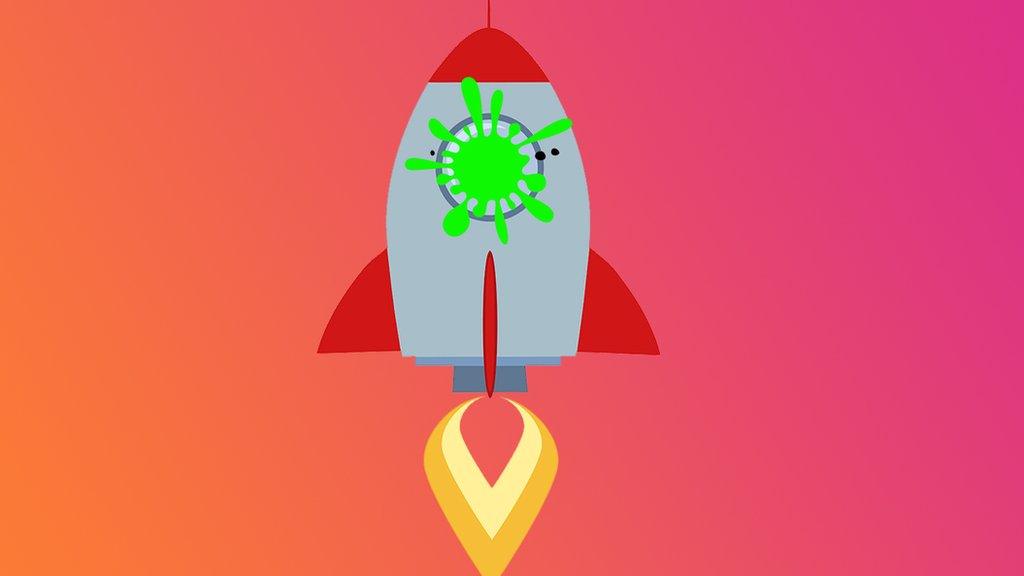Space: Nearby planets could support life
- Published
- comments

Astronomers have found a rocky planet, out of our Solar System, which they think could support life.
Scientists were looking into planets around a nearby star, called L98-59, which are similar to those in the inner Solar System.
They discovered a possible planet in the habitable zone.
"The planet in the habitable zone may have an atmosphere that could protect and support life," said Maria Rosa Zapatero Osorio, an astronomer at the Centre for Astrobiology in Madrid, Spain.
The definition of a habitable zone is the distance from a star at which liquid water could exist on orbiting planets' surfaces.
They are also known as goldilocks' zones, where conditions might be just right - not too hot or too cold for life to exist.

European Southern Observatory's Very Large Telescope was used to discover more about the planets
Researchers used the European Southern Observatory's Very Large Telescope (ESO's VLT) in Chile to find out more about the planets.
Scientists found that three of the planets may contain water in their interiors or atmospheres.
The two planets that are closest to the star are probably dry, but might have small amounts of water, while up to around a third (30%) of the third planet's mass could be water, making it an ocean world.
Exoplanets are planets that obit a different star than our Sun - in a different solar system to the one we are in.
The team also found exoplanets that had not been spotted in this planetary system before.
They found four planets and they think there could be a fifth where its distance from the star means liquid water could exist on its surface.
These findings are exciting because they are potentially a step closer to discovering life on planets outside the Solar System.
- Published23 October 2021

- Published3 June 2021

- Published5 August 2021

